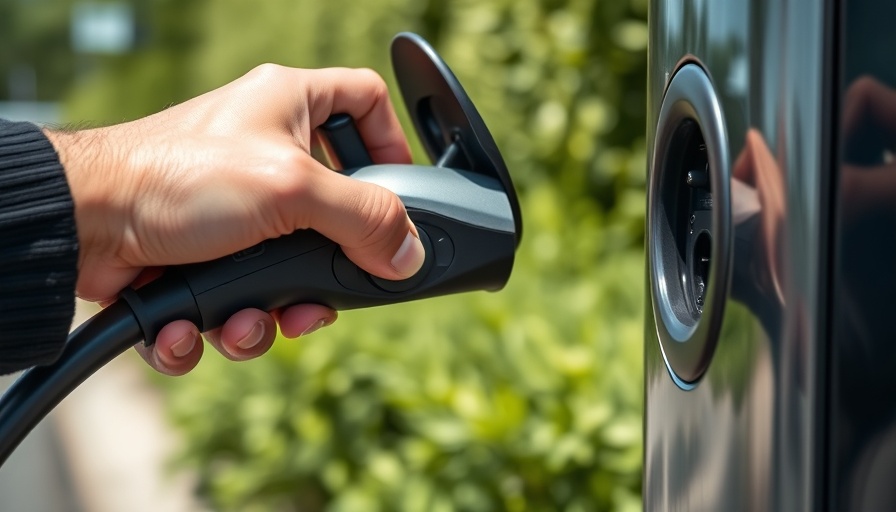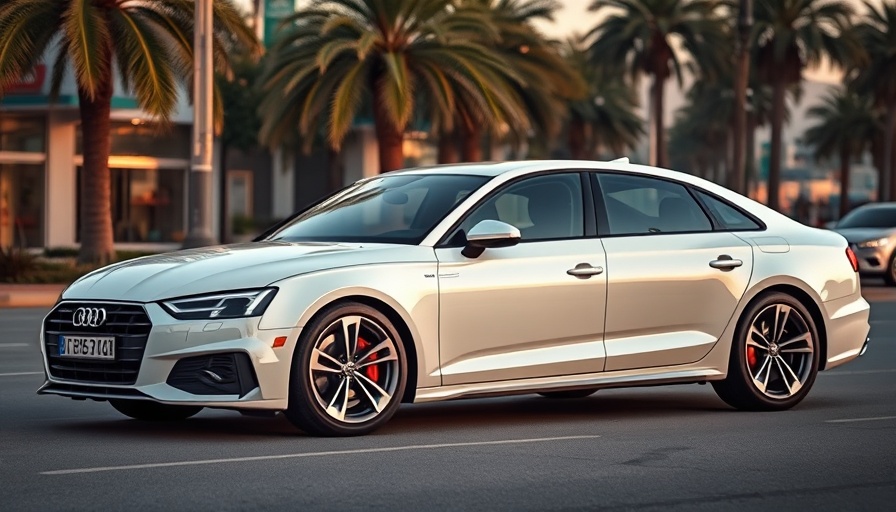
Revolutionizing Electric Vehicles: Intel's Ambitious Plans
In a bold move that could set a new standard for electric vehicles (EVs), Intel is embracing the concept of software-defined vehicles (SDVs) to streamline automotive technology and enhance driving efficiency. Recently presented at the Consumer Electronics Show (CES), Intel's new architecture aims to consolidate the dozens of electronic control units (ECUs) found in modern EVs into a streamlined system. This could not only reduce costs but also improve the range and performance of these vehicles.
The Concept Behind Software-Defined Vehicles
At the heart of this innovation is the Adaptive Control Unit (ACU), which promises to simplify the control of all vehicle functions onto a single processing chip. By adjusting voltage levels in real time and shifting workloads autonomously, the ACU can increase the energy efficiency of an EV, potentially leading to a 3-5% boost in range. For a market rapidly shifting towards more sustainable solutions, such improvements could significantly alter consumer perceptions and usage of EVs.
Karma Kaveya: A Groundbreaking Prototype
Anticipation is building around the upcoming Karma Kaveya, a striking all-electric coupe set to showcase Intel's architecture. With impressive stats, including a 1,000-hp output and 0-60 mph in under 3 seconds, the Kaveya represents more than just a performance vehicle; it embodies the culmination of Intel's vision for the future of automotive technology. This car will function as a "living development prototype" for further innovations, serving to test and refine Intel's systems in real-world conditions.
Impact on the Automotive Industry
As tech giants like Intel step into the automotive space, traditional boundaries are blurring. The collaboration between Intel and Karma underscores a growing trend where vehicle performance and adaptability rely on sophisticated software solutions. This shift presents an exciting challenge for traditional manufacturers to rethink their design and production processes. A key question arises: how will established automakers respond to this new landscape?
What Does This Mean for Dealerships?
For dealership principals and general managers, Intel's innovations could translate into transformative changes in inventory management and repair protocols. The ability to provide over-the-air updates and seamless software integration may lead to a new era of customer service. Customers might appreciate a more tech-savvy dealership experience, where vehicles are continuously improved after purchases rather than needing frequent returns for updates.
Future Trends in Electric Mobility
As we look towards the future of electric mobility, the significance of software in vehicle design cannot be overstated. Integrating responsive systems that optimize performance and reduce energy consumption is crucial. With more automakers embracing similar technologies, staying informed about these advancements will be paramount for dealership operations and strategic planning.
 Add Row
Add Row  Add
Add 




Write A Comment